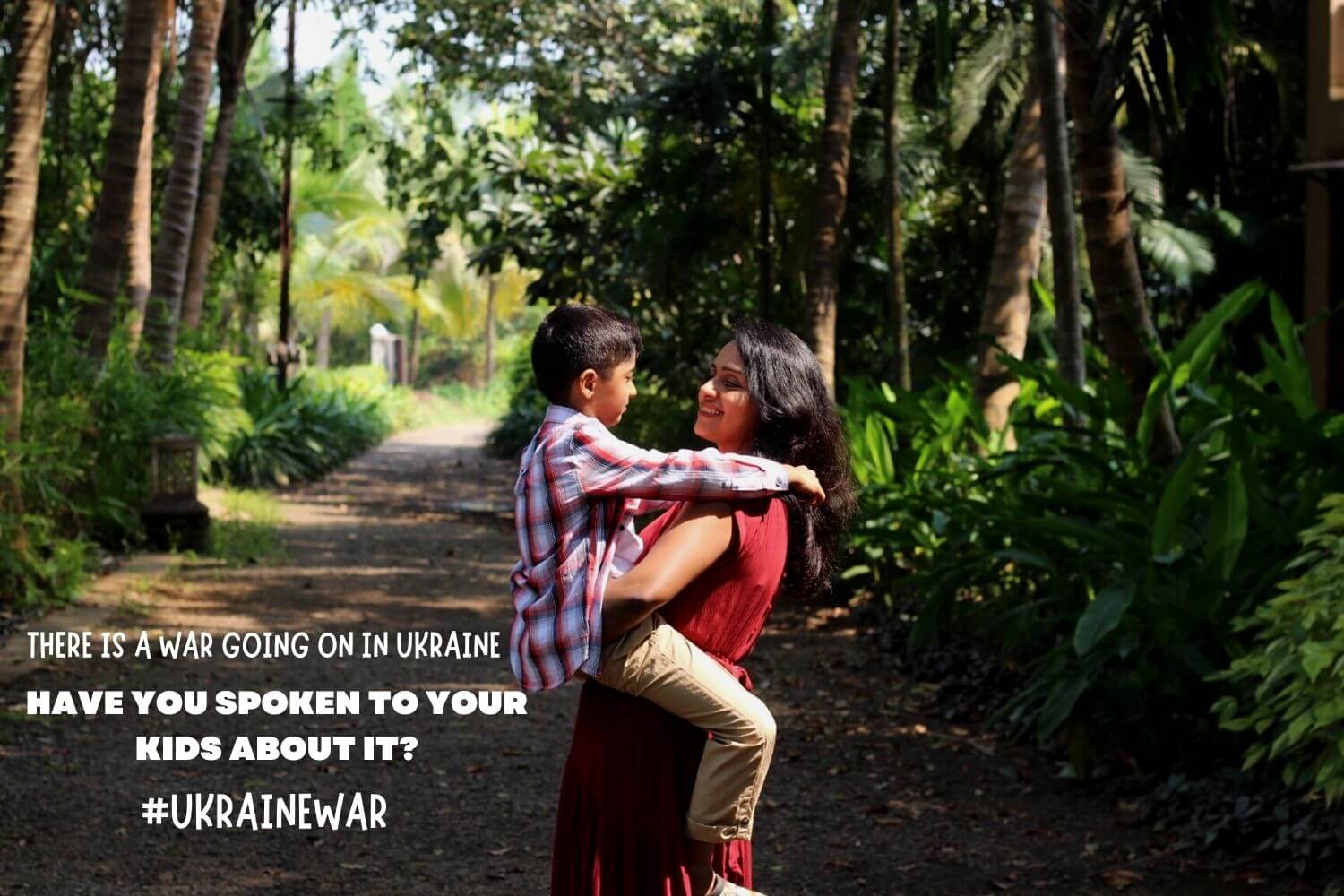
How to talk about war to kids
Parenting is all about the filters through which we want our kids to see the world. Whether it’s increased violent crime or the war in Ukraine, we can feel overwhelmed and despairing and it’s very hard not to communicate that with our kids.
It’s tough to find the right words, feel confused, and sensitive on so many levels.
While no one expected this, the war in Ukraine is real, it’s happening and whether you want or not your kids have already heard about it.
Give this one a read! And you’ll know, we all as parents are on the same page when it comes to discussing violence of any sorts with our kids.
How to talk to children about war can be hard, our instinct is to ‘protect’ them from the scary reality of the world.
It is definitely difficult for kids who have faced two years of pandemic and now they’re witnessing a War.
Why And How To Talk To Your Child About War?
Remember they might hear it from their peers, from school and older kids might even search on the internet. So it’s best to be transparent and not assume your kids to be naive. They instantly pick up on tone, expression and every hushed voice you use.
For younger children, if they don’t seem to be affected by what is going on, then there is no need to bring the subject up.
So How Do You Teach Kids About War?
- Strike up a Conversation With Your Child- A lot of time kids listen, read and comprehend differently. That’s why striking a conversation will not only clear their doubts but also help you understand what they are feeling after hearing about the war. With a better understanding you can help them calm their anxiety.
- Find out What Your Child Is Overhearing- internet is a scary place and all kinds of version of war and news might be available to them on searching. Or maybe they hear from their peers. Talking to them will help you know what all are they been privy to.
- Explain the Purpose of War-Your kids might question, if war is bad then why do countries go on war? And they have a valid question at hand. Explain it as calmly and matter-of-fact as you can. War is a violent conflict between countries. Most wars are fought for economic, religious, and political reasons. You can cite some examples of wars that were fought to gain independence from colonial empires, so that they understand that some wars are needed.
- Hold Back When Necessary- Wars of any kind will have destruction and death. These are some gory details you can avoid sharing too much.
- Watch Media Coverage Alongside Older Kids and Teens– This way you can monitor what they are watching and then discussing them with them not only help them settle this as a fact and news and also help them cope with their emotions.
- Point Out the Good People Who Are Helping- Share with them how other countries are helping them with war aid, supplies, air lifting citizens and also sending their military to help.
- Encourage Compassion- Use the above point to encourage them to raise money for war relief and teach them compassion.

Soldiers in a war
How Do You Explain War To A Younger Child?
When discussing about the war with younger kids the conversation should be short and clear. Messages could include: “There’s a war far away where there are Ukraine soldiers. We’re safe but it is a big deal.”
If they ask you a follow-up question, state the answer in simple words. We should limit their consumption of the news and shouldn’t force the conversation related to a War. Make them understand why war is not good and ask them to pray for Ukraine alongside you and pray for the World.
In the end, we hope this is the worst that 2022 has seen and that this ends soon.











Leave a Reply